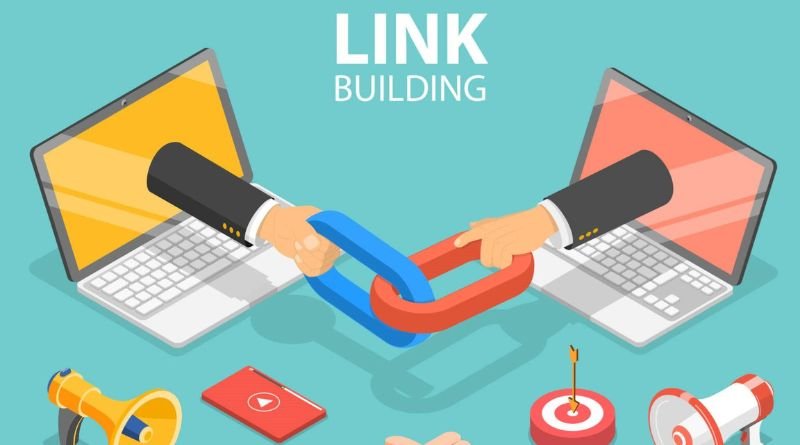Link building: What is it, why you need it
Link building plays a pivotal role in the world of search engine optimization (SEO) and digital marketing. Its essence lies in acquiring hyperlinks, or simply “links,” from other websites to yours. These links, also referred to as backlinks, inbound links, or external links, wield significant influence over a website’s search engine ranking, visibility, and authority.
So, why is link building crucial, and why should you make it an integral part of your digital strategy?
- Elevated Search Engine Rankings: Search engines like Google take into account both the quantity and quality of backlinks when determining a website’s rank. Websites boasting a robust collection of high-quality backlinks typically secure higher positions in search engine results pages (SERPs). Therefore, link building becomes imperative in enhancing your website’s visibility and attracting organic traffic.
- Augmented Website Authority: Backlinks originating from authoritative and reputable websites can impart a sense of authority to your website within its niche or industry. When such credible websites link to your content, it sends a strong signal to search engines that your site is a valuable and trustworthy source of information.
- Amplified Referral Traffic: Beyond SEO benefits, backlinks also act as conduits for referral traffic. Whenever users click on a link from another website leading to yours, it translates into targeted visitors who hold a genuine interest in your content, products, or services.
- Credibility and Trustworthiness: The presence of backlinks from trusted websites can bolster your website’s credibility and trustworthiness. Users are naturally inclined to place their trust in and engage with content that emanates from reputable sources.
- Nurturing Relationships: Link building often necessitates reaching out to fellow website owners, fostering relationships within your industry. This networking can open doors to various opportunities, such as collaborations, guest posting, and partnerships, all of which can further enhance your online presence.
- Competitive Edge: In highly competitive sectors, link building can provide a significant edge. If your competitors boast formidable backlink profiles, it’s imperative to build your own to remain competitive and secure your share of the online market.
- Diverse Link Portfolio: An assortment of backlinks from diverse sources, including blogs, news sites, forums, and social media, can significantly bolster the overall health of your link portfolio. A natural and diversified link profile is more likely to weather algorithm updates and avoid penalties.
- Long-Term Viability: High-quality backlinks offer enduring benefits for your website’s SEO. While some SEO tactics may yield rapid results, link building offers a sustainable strategy for maintaining and improving your search rankings over the long haul.
It’s worth noting, though, that not all links are created equal. Quality takes precedence over quantity. Low-quality or spam-ridden backlinks can detrimentally impact your SEO endeavors and even lead to penalties from search engines. Therefore, focusing on acquiring high-quality, pertinent, and naturally acquired backlinks through ethical and white-hat link building practices is paramount.
Things to consider before choosing the right link-building agency
Choosing the right International Link Building Agency is a critical decision for the success of your digital marketing and SEO efforts. Here are some important factors to consider before making your choice:
- Reputation and Track Record:
- Take the time to research the agency’s reputation and track record. Look for reviews, testimonials, case studies, and client references to get a sense of their performance and reliability. Ask them for examples of successful link-building campaigns they’ve executed.
- Transparency:
- Transparency is key. The agency should be open and honest about their link-building strategies, the websites they targets, and the methods they uses. Be cautious of agencies that promise quick results without explaining their approach.
- Link Quality:
- Evaluate the quality of the links they build. Quality should always outweigh quantity. Ensure that they prioritize high-authority and relevant websites, as low-quality or spammy links can harm your website’s SEO.
- Link Building Methods:
- Inquire about their link-building methods. Make sure they follow ethical and white-hat SEO practices. Avoid agencies that engage in black-hat techniques like buying links or using automated link-building software.
- Content Quality:
- Content plays a central role in link building. Assess the agency’s ability to create high-quality, engaging, and informative content, as this is more likely to attract natural backlinks.
- Niche Expertise:
- Consider whether the agency has experience and expertise in your specific industry or niche. Niche-specific knowledge can be valuable in crafting relevant and effective link-building strategies.
- Customization:
- Keep in mind that a one-size-fits-all approach rarely works in link building. Ensure that the agency tailors their strategies to meet your unique goals and needs.
- Communication:
- Effective communication is crucial. Make sure the agency is responsive and provides regular updates on the progress of your link-building campaigns. You should have a dedicated point of contact for any questions or concerns.
- Reporting and Analytics:
- The agency should furnish detailed reports on the status and impact of their link-building efforts. These reports should include key performance indicators (KPIs) such as traffic, rankings, and the quality of acquired links.
- Cost and Value:
- Compare the cost of the agency’s services with the value they bring. A lower price may not necessarily mean a better deal if the quality of service is lacking. Consider the return on investment (ROI) in terms of improved SEO and website performance.
- Contract Terms:
- Carefully review the contract terms, including the duration of the engagement and any cancellation policies. Make sure you have a clear understanding of what you’re committing to.
- Scalability:
- If your website’s needs are expected to grow over time, consider whether the agency can scale their services to accommodate your evolving requirements.
- Ethical Guidelines:
- Verify that the agency follows ethical guidelines and adheres to Google’s Webmaster Guidelines. Unethical practices can lead to penalties and long-term damage to your website’s reputation.
- Legal Compliance:
- Ensure that the agency complies with relevant laws and regulations, including copyright and intellectual property rights, in their link-building activities.
- References and Recommendations:
- Seek recommendations from industry peers or colleagues who have experience with link-building agencies. Word-of-mouth referrals can provide valuable insights.
Taking the time to thoroughly research and evaluate potential link-building agencies will help you make an informed decision that aligns with your goals and safeguards your website’s SEO integrity.
In summary, link building stands as an indispensable facet of digital marketing and SEO. It can propel your website to higher ranks in search results, boost its authority, and draw valuable organic traffic, thereby contributing significantly to your online success.









